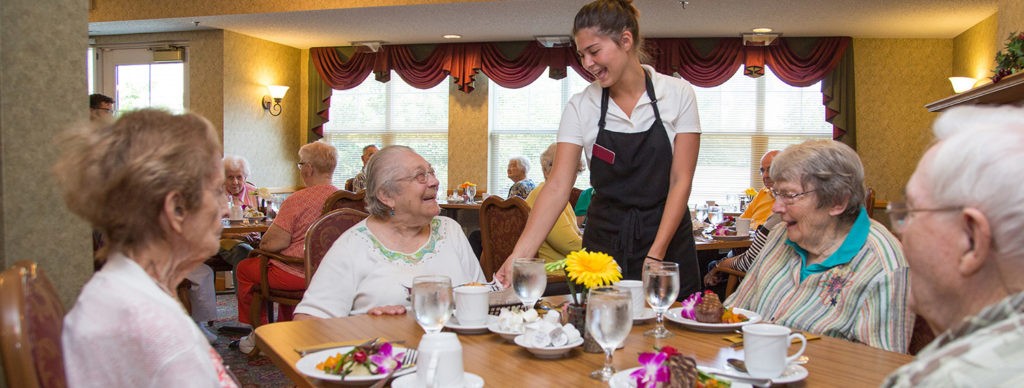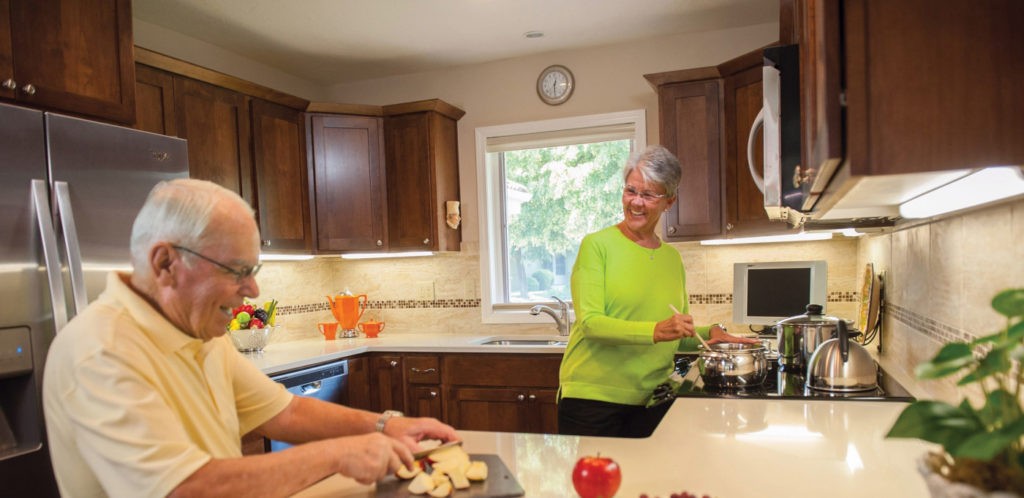Home Sweet Different Home

As your loved ones advance in their years, chances are they are going to want to stay in their home that they are comfortable in, but aging in place may not be a realistic option. What if one, or both, are having difficulty with the stairs, keeping up the yardwork or driving to the store?
Even if you have concerns about their living situation, starting out by telling them what to do usually isn’t well received. Visiting them frequently or pitching in on tasks around their home will provide you a better picture of the level of care your parents need. And the best time to make the move to a senior living community is before a crisis happens.
Whether it’s a move to Independent Living or it’s time for a nursing home, here are some things to consider that will lead you and them in the right direction to keep them safe, happy and healthy.

Are they still driving safely?
Driving can become dangerous as we age because of decreased vision, slower reaction time or mental acuity. Red flags include an increase in accidents or dents and scratches on their vehicle. If they are no longer driving, do they have alternate means of transportation? For these reasons, most residents in an assisted living community prefer to take advantage of the free transportation that’s provided as it affords them the freedom of grocery shopping or a trip to the drugstore.
Is their home being neglected inside and outside?
Seniors oftentimes struggle to maintain their homes due to the physical aspects of life including mowing, shoveling and vacuuming. These become things of the past when moving into a retirement community, lessening the worry of injury these tasks can cause your parents.
Is your loved one eating healthy, balanced meals regularly?
There are many seniors who are used to living alone and may not be getting the nutrition they need. Senior living provides residents with a fine dining experience every day of the week. The food is healthy and tasteful, and meals with a special diet are usually accommodated. Residents tend to experience improvements in their health just by eating regular meals.

Do they talk about feeling safe?
Seniors are at a greater risk of being injured when living at home, whether that be by a fall or a break in. Living in a senior living community will give loved ones the peace of mind that they are in safe hands and there is an emergency response team to take care of them if the need arises.
Improved Family Relationships
Older folks frequently become dependent on their grown children, and role reversals can strain relationships and foster resentment or guilt, both by parents and their children. Senior living situations liberate family members from the role of full-time caregiver and the time they spend with them will become more meaningful. Facilities can assist with better family involvement via technology, making it easier to communicate with caregivers to stay involved with their loved ones’ lives.

Friends Boost Health and Well-Being Among Older Adults
Older adults who live alone often become isolated, which is unhealthy at any age. New research discovers the power of friendship gets stronger with age playing a significant role for one’s happiness and health. Dr. William Chopik, a Michigan State University professor, discovered that friendships become increasingly important to one’s happiness and health across the lifespan. “If a friendship has survived the test of time, you know it must be a good one – a person you turn to for help and advice often and a person you wanted in your life.” Moreover, in older adults, friendships are actually a stronger predictor of health and happiness than relationships with family members.
Are they keeping their mind and body active?
Living alone, those in their advanced years may not be able to participate in activities they once enjoyed. Senior communities offer a wealth of engaging opportunities such as board games, reading groups, art classes and physical activities. These activities are fun while helping them maintain good physical and emotional health and cognitive function. Residents need never be bored at a senior living community.
As George Bernard Shaw once said “We don’t stop playing because we grow old. We grow old because we stop playing.”
Sources: www.aplaceformom.com, www.agingcare.com, www.aarp.com, www.psychcentral.com






